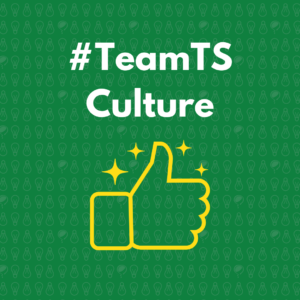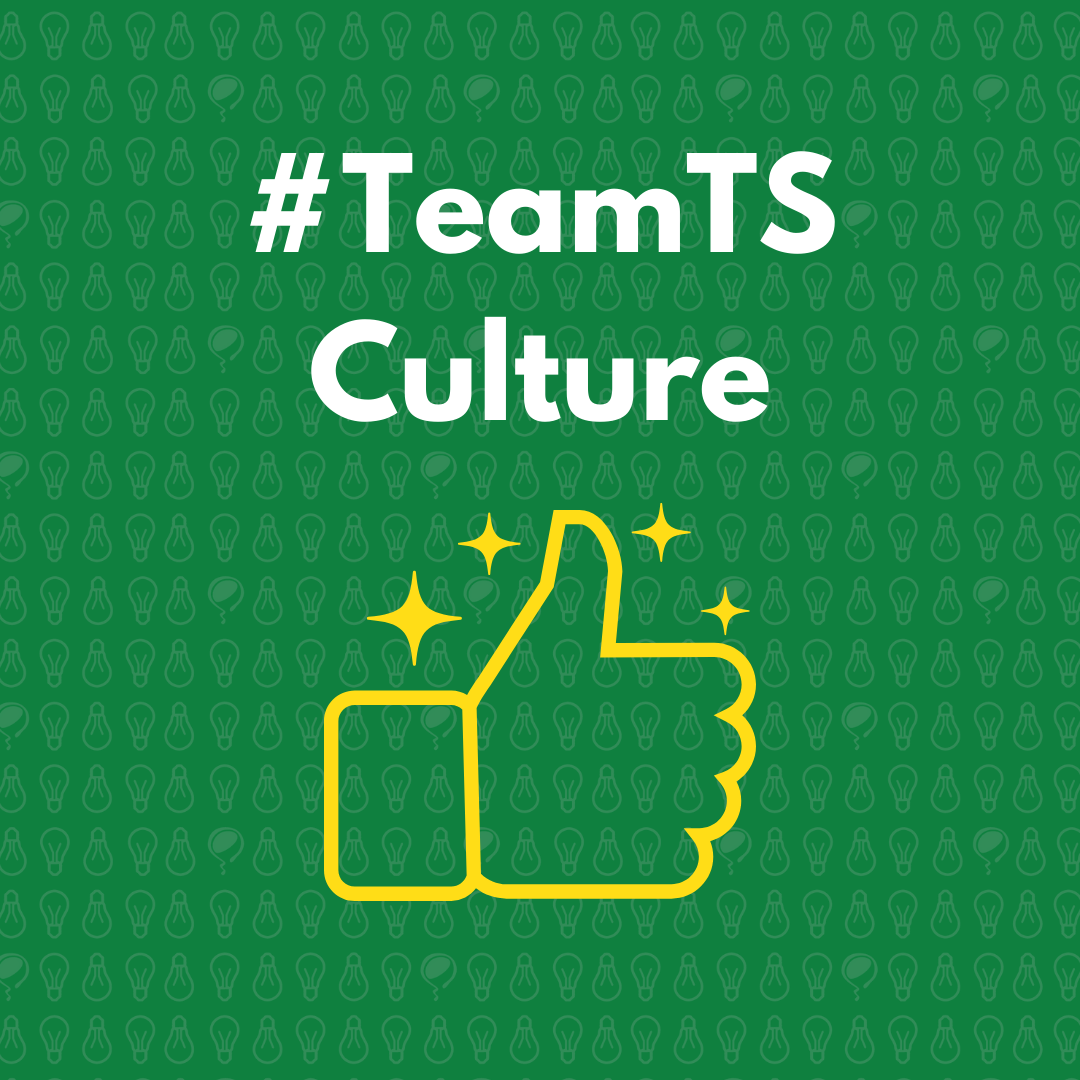#TeamTS Culture Series
 How does a firm sustainably grow from 5 to 55 employees with a 100% remote company structure? During his keynote presentation at the 2023 City Clerks Association of California Annual Conference, Tripepi Smith Principal Jon Barilone shared insight on the answer: company culture.
How does a firm sustainably grow from 5 to 55 employees with a 100% remote company structure? During his keynote presentation at the 2023 City Clerks Association of California Annual Conference, Tripepi Smith Principal Jon Barilone shared insight on the answer: company culture.
As a completely virtual company, Tripepi Smith relies on our culture to drive employee behavior. Communication guides the workplace experience when management isn’t around, and that communication is inherently informed by our culture. The bigger we get, the more we realize how important culture is to our work, to who we are, and to how we create a team experience.
With our classic, #TSThumbsUp selfies and #TripepiSmithLife hashtags, it’s easy to feel a sense of community among our colleagues from Day One. These emblematic features are just a small representation of our company culture, but they evidence the enthusiasm we have for our work and our team.
Cultivating a strong company culture is one of the best ways to empower your team to achieve their goals. At Tripepi Smith, we live by the following quote from Peter F. Drucker: “Culture eats strategy for breakfast.” We translate this a few different ways:
- A positive culture that promotes collaboration, innovation and accountability can fuel the success of any strategy.
- A negative culture that fosters resistance, complacency or mistrust can undermine even the best strategy.
- The bottom line is that having a positive culture everyone believes in makes for a passionate and successful team.
When you initially define your culture, you’re defining the proper way to behave. A company may describe its desired culture by its vision, mission and values. Together, they provide a clear sense of purpose and direction, which helps guide decision-making, goal-setting, and strategy development.
As part of their orientation on Day 1, Tripepi Smith new hires read a lengthy “Guidebook” that explains a lot of the basics about life at Tripepi Smith and what they should expect in their respective role.
Part of that Guidebook lays out five of our culture cornerstones:
- ABL (Always Be Learning): We encourage curiosity and being lifelong learners. One of the biggest benefits of being a small business is that learning scales. Once someone learns a lesson or a tip, 40+ other people can know it.
- Be Kind: This doesn’t mean we encourage toxic positivity. We simply emphasize the importance of not making assumptions when you feel like something is wrong. As the popular saying goes: “Everyone you meet is fighting a battle you know nothing about. Be kind. Always.”
- Own Mistakes: We don’t ask anyone to publicly flog themselves and our “be kind” behavior wouldn’t stand for that anyway. Nobody is perfect. But we do expect teammates to be responsible for their own work product, and mature enough to learn from mistakes so they don’t happen repeatedly.
- Coach (and Be Coachable): Part of learning and accelerating one’s career requires knowing when mistakes are made, but no one likes being told they did something wrong within earshot of their peers. We always strive to “praise in public, coach in private.”
- We’re Order-Makers, not Order-Takers: We ask our team to think critically in all aspects of their work. Sometimes, that means making a suggestion to a client about an improvement on the client’s initial idea or speaking up when you think of a way to improve efficiency on a project.
While it is important to establish a framework for your company’s culture, culture is made in practice, not by definition alone. Your culture is the average, actual recent experience of your employees. Culture might initially be created or guided by leadership, but sustaining that culture boils down to whether employees feel safe, valued and respected. It is also essential that employees feel like the work they’re doing is important so that they are invested in the company’s success and intrinsically interested in opportunities to improve (whether themselves, processes, or best practices).
Tripepi Smith maintains these values by both curating and cultivating our company culture. The people that we gather to form our team believe in these principles, and we sustain our culture by embodying our principles in our daily behavior. Indeed, we dedicate time and costs to supporting the culture.
One of the many ways TS company culture is woven into employees’ work experience is the “Shout-out” portion of our weekly team call, a regular forum for teammates to give each other public kudos. You may have some shy staff members, or you may be that shy staff member. Giving teammates a spotlight is an easy, repeatable way to show you value them. This, hopefully, translates into ongoing intrinsic motivation on their end.
When our employees are confident in the work they do, they’re empowered to help out when a teammate needs a hand. That inclination to cooperate and collaborate is common at Tripepi Smith. When we see someone ask for help, we don’t see that as weakness. We see it as maturity to want what’s best for our clients.
We take on meaningful and hard work, but altogether, Tripepi Smith culture doesn’t neglect to evoke the words of Mary Poppins: “in every job that must be done, there is an element of fun,” whether that’s a company-sponsored viewing of the Taylor Swift (TS) Eras Tour film or dressing up for Halloween on our weekly Team Call.
At Tripepi Smith, our company culture of cooperation, quality assurance and community sustains the challenging, exciting and meaningful work we do in support of public agencies and private clients across the United States and beyond.
Our culture lessons at Tripepi Smith are applicable to your organization. By sustaining a thriving positive company culture, you can trust that your employees will be developing positive habits, find fulfillment in their work experience and let that drive shine through when serving stakeholders. Contact us to learn more about how we curate our culture and how what we have learned could apply to your organization.


